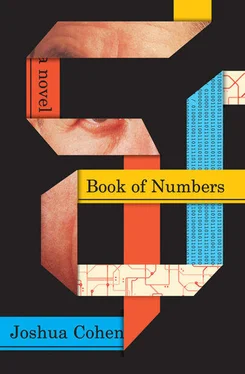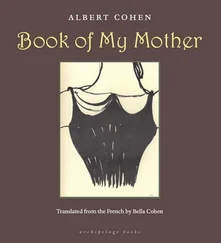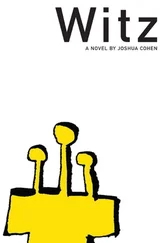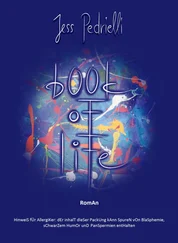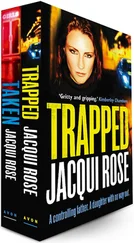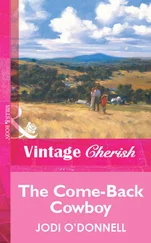Shoregirt.
Let me reel in that life, like a fishing haul, winching back the lines for concessions, cranking the queues to catch battered flounder, hook pizzas and gyros, burgers and franks, fries like bait, and funnelcake like tangled tackle. Or else, like a gull drops a bivalve to smash its shell, then swoops down to beak up the meat — my memories:
Beachfront, we had resorts too. Hotels and motels. A boatel. Then four blocks in, off the touristed strip, lotto bodegas and pawns. A decent taco drivethru. A gas station.
Another four blocks inland and it’s already the other side of the island, the bayside, where Shoregirt — a city in summer, a town in spring and fall, a village in winter — dwindles into wharves. At the top of the island, sandcastle timeshares, at the bottom, tenements teeming like conches on the verge of being outgrown, kept by chainlink fencing trawling fortybottles, sixpack rings, and butts. The ocean goes in, the ocean goes out, east to west. The boards, the promenade’s planks, curl to crash north to south.
Home was in the axis. Between the two waters, the open ocean, the closed clammed bay. My house, two floors of wind between the shingles. Giving directions, my mother would say, “By the gas station.”
Do I trust myself in this garden state? With the heart all rusted like an abandoned Mister Softee?
To Moms, I’d never be “a beach person.” At best I’d be “a shoebee”—which was as far out as she’d swim into slang: a local term for all the poor Polish Jews who hadn’t moved out of NY and married American, who’d come down the shore for the day with all their necessities — cold leftovers, balms — packed into a shoebox.
My necessities were books. I read a book at school, another to and from school, yet another at the beach, which was the closest escape from my father’s dying. Though when I walked alone it was far. Though I wasn’t allowed to walk alone when younger — so young that my concern wasn’t the danger to myself but to the books I’d bring, because they weren’t mine, they were everyone’s, entrusted to me in return for exemplary behavior, and if I lost even a single book, or let even its corner get nicked by a jitney, the city would come, the city itself, and lock me up in that grim brick jail that, in every feature, resembled the library.
I’d be sneaking around, then, until my father quit his chemo, and Moms resolved to spend our final family time together by the wake down the street. I dressed in long sleeves long pants long face and brought along whatever I was reading bound in its municipal cellophane.
I’m recalling a stretch of grain as a single day — Dad yelling at me, “Stop that, enough with the words. I have one word for you — Atlantic, get in!”
Kaufman and Laufer were digging moats. The Tannenbaum sisters buried each other. The Gottlieb twins wore baseball mitts on their heads to guide their mother cutting their hair, then they had a catch with their father — not even, their stepfather — while Dad, sclerotic, was sputtering, “Get out there, bodysurf! Goddamn it, ride a wave!”
After that didn’t work, it was, “Here’s a dollar for the games”—the gambles a kid could take, the gambles not even a kid could take. Skee-Ball and Whac-A-Mole, or the forceps submerging in plush, always surfacing empty.
“I’m too old for that,” I said.
“Leave us, amuse yourself, enjoy.”
Moms said, “Just this once you’ll do this.”
I was 12.
Money meant that Dad had made mud in his diaper.
It must’ve been mortifying for him to have to use wide waddling Moms as a cane, hobbling him under the boardwalk, to change.
Though I was reading I didn’t comprehend all this until after.
“Enough with the book!” and Dad, churning, gathering his strength into swells, threw himself out of his chair and atop me, ripped the book from my hands — a sentence, in the middle of a sentence — and, limping through the froth, threw it to the Atlantic, far out, not far enough out, its pages splayed like an injured pigeon.
The book splashed, and surged, and a wave brought it in and so Dad, wailing, stooped to his soil, picked the book up and tossed it again, but another wave brought it in and again, until he fell by the tidemark — only for Moms to claw for the book before dragging him in.
The book before the husband. I cried the whole way home.
Out amid the spindrift tears, by boardwalk’s midpoint, between Eustasy and Orarian Terraces, there’s a bench: a slatty construction anchored in tar, with a plaque engraved on the back dedicating it to my father, 1924–1984, Yevarechecha Adonay, v’yishmerecha —the inscription translating as badly as a stranger’s dream, or sappy reminisce.
Dubai. If I would’ve drowned off the coast of my childhood, and my body had sunk to the bottom of the ocean as dead as my father’s, this is what that bottom would be like. Truly, the furthest shore. Where there were no poor, and certainly no shoebees. Just children, or the childish. Foreigners whose very foreignness was childish, demanding exorbitant juicy red orange yellow iced quenchers be traipsed to their wombish white caravan cabañas between sucks on their flaring cigars — they’d become adults again only when the bill came.
The Gulf sun does that, it reverts, regresses — unthinkable to be a thinking person amid all this light and heat.
The resort curved up, like a fin or wing, a dhow’s sail giving shadow: Eurotrash littering, their guts and asses and tits heaped rudely, extremities flung out to grip the towel tips, the corners of the plush horizon. The men spilled from their trunks. Hairy but soft, bodies the consistency of flaccid cock, sticky testicles lolling. The women were counterpoised, compensatory, lean, bronzed upgrade wife and mistress trophy, bones propping up the skin tent, shaylas for the bust and crotch, burqinis.
This was a private beach, then, and not cheap. Barbicans segregated it from the public beaches, which segregated themselves by gender — you have to pay for equality.
I stomped to an unclaimed chaiselounge, and ratcheted it back to an obtuse degree, sat, lay — washed up.
I tugged down the visor, repositioned the shades. More Tetration freebies, more items lettered with corporate glyph.
No one around me was doing anything, even making conversation. They were all just perfectly inert, laid out prone or supine as if submitting to autopsy or dissection. Only the dead or the lowest of species can bask, I’m convinced. That basking was making me suspicious — and turning me into my father: Why don’t you diddle a racquet? go fly a kite?
I rummaged through my Tetote — also company complimentary, brimming with brandwater, brandpretzels and chips, “fresh” dates and figs, that commonest variety of nut called “mixed,” yogurt or no, that’s sunscreen — for my Tetbook.
But nothing else was getting written.
Just like it’s impossible to be around words without reading — try not to read the next words as they turn — it’s impossible to be around the naked without gawking.
\
As I closed my Tetbook on a.doc unsaved — it was replaced by another mirage. A bland white guy whiteguying up to me, in flipflops.
He was familiar, but I wasn’t sure how. He had this ambling and amiable coach demeanor, and the agglutinated fatness of the entire Eastern Division of pro football, American football. He was in slumpy trunks and a tanktop from a Beat Leukemia!! 5K race he definitely hadn’t run, and then the tanktop was off, and was over his head like a kaffiyeh. As he settled into the lounger beside mine, his flab extruded between the slats.
He grinned buckteeth and said, “Hiyo,” aggressively genial, content with his content. He produced an identical Tetbook from an identical Tetote, set it in what had to be his lap.
Читать дальше
